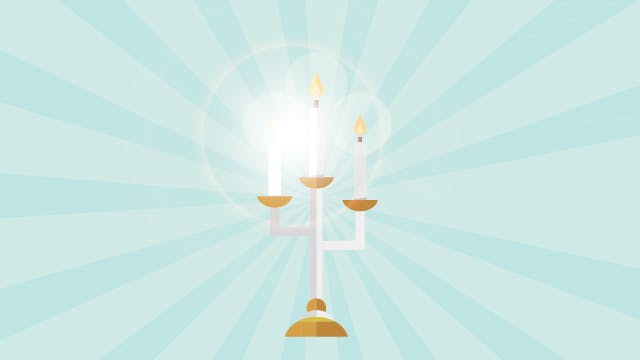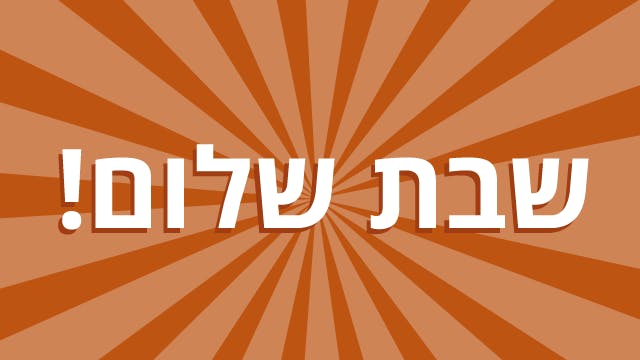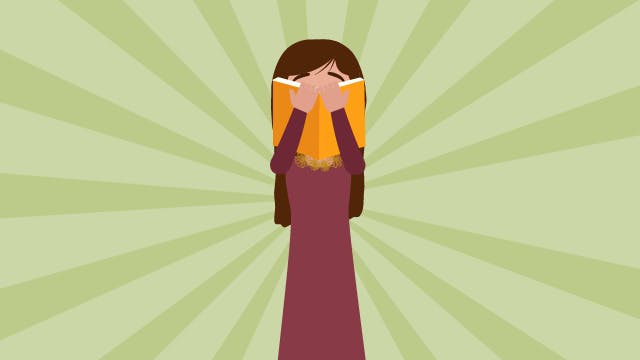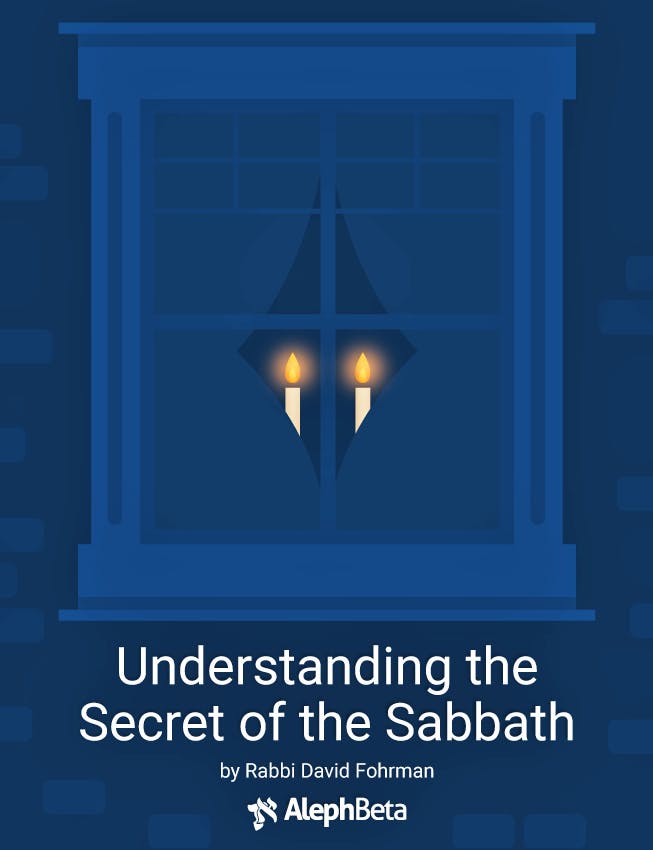Shabbat: What Is It? Its’, Meaning, the “Shabbat Shalom” Greeting & More
What Is Shabbat?
There are so many “things” we associate with Shabbat. Rituals like candle lighting, Kiddush and Havdalah. Laws that prohibit cooking, gardening and writing. Prayers, naps, big meals with family and friends. So what’s at the heart of the Jewish day of rest? What’s it really all about?
The Torah tells us that God created the world in six days, and on the seventh He rested – which means “Shabbat,” in Hebrew. Later on, after God took the Israelites out of Egypt and gave them the Torah at Mt. Sinai, He commanded them to keep Shabbat – to desist from all labor every seventh day, just as He did. But this command is not some meaningless call for mimicry. It’s a way of recognizing where the world came from, and it gives us time away from the daily grind to focus on becoming a little closer to God.
All of the little details of Shabbat all connect back to this central idea: acknowledging that God is the Creator of all.

The Meaning of Shabbat?
We know Shabbat is the day of rest. But what does that mean? Why is rest such a big deal?
When God first rested, He had completed His task of creating the heavens and the earth. In other words, God wasn’t taking a break – there was nothing left to do. Everything was complete, and there was simply no need for further effort or thought – now the point was to simply enjoy the fruits of all the hard work.
Similarly, when we talk about Shabbat being a day of rest, this doesn’t just mean, “take a break for a day.” Resting is a perspective. It’s not just refraining from work, it’s believing there’s no work to be done. It’s allowing oneself to enter into a mindset of completeness. When you enter into this mindset, our goals and ambitions take a backseat, and life becomes just about enjoying what’s around us.
The Sabbath is also described as “Shabbat LaHashem Elokechah” – a day of rest for the Lord your God. In other words, when we stop focusing on our work, it gives us the opportunity to spend time focusing on God and appreciating all He does for us. And this is actually not unique to the weekly Sabbath: festivals like Passover and Rosh HaShanah, and even the Sabbatical year are also referred to as “Shabbat” in the Bible. They all involve a command to desist from work on some level, and that is what allows them to be opportune times to spend reflecting upon a whole variety of ways we can appreciate God.
Rabbi Fohrman dives further into the topic of what it really means to rest on the seventh day.
What does Shabbat Mean in Hebrew?
“Shabbat,” or שבת, is a Hebrew word that means “He rested” in English. In the beginning of the Book of Genesis, we read how God created the world in six days, then rested on the seventh.
Interestingly, the term “Shabbat” isn’t really mentioned in Genesis – instead, the day is referred to simply as “Yom haShevi’i,” the seventh day. Later on, in the Book of Exodus, the Bible begins to refer to the original seventh day, along with every seventh day after, as “Shabbat” – the day God rested.
Origin of Shabbat
Shabbat comes from the very beginning of the Bible, in the second chapter of Genesis.
The first chapter of Genesis talks about how God created the heavens and the earth in six days; we hear about everything from light and darkness to water and land, to the stars and the trees and the animals – and, of course, man. Then the Bible says that God stopped working, He rested on the seventh day, and He blessed it and made it holy.
The first time the Children of Israel were commanded to observe a Sabbath was when God took them out of Egypt into the wilderness. God provided manna for the nation every day, but He didn’t provide any on Shabbat. Instead, He gave a double portion of manna on Friday. This way, God would rest on the seventh day, and the people would too – instead of going out and collecting manna and then bringing it home and cooking it, they were told to spend the Sabbath at home in their tents, resting, free from all work.
A short time later, when God gave the Ten Commandments, He instituted Shabbat as a weekly holiday, when all Children of Israel would spend a day resting and recognizing God as the Creator of the world.

When is Shabbat Celebrated?
Shabbat is observed every week, starting at sunset on Friday and ending at nightfall on Saturday.
What Time Does Shabbat Start & End?
In the Jewish calendar, every day starts at night. Sounds a little backwards, but it’s actually based on the Bible’s description of creation. See, when the whole idea of a “day” first came to be, it was all about the transition from darkness to light. The Bible describes the very first day as וַיְהִי־עֶרֶב וַיְהִי־בֹקֶר יוֹם אֶחָד – “it was night, then it was morning – one day.”
Because of that, we start Shabbat at sundown – when the day first starts to transition to darkness. We end Shabbat the following nightfall, about 25 hours later.
Since sunset and nightfall change based on the time of year, Shabbat actually starts and ends at a different time every week.
The Meaning of Shabbat Candles
Every week, 18 minutes before sunset, candles are lit in households celebrating Shabbat. The candles are usually lit by a woman, although they don’t have to be. A blessing is recited over the lighting.
Some common customs associated with candle lighting include waiving one’s hands in circles and giving charity before reciting the blessing, and saying a special prayer for one’s children after reciting the blessing.
The purpose of the candles is to ensure there is light in the house. Because lighting fires is prohibited on Shabbat, the Rabbis of the Mishnah made a decree that all homes had to have candles lit before sunset to ensure that Shabbat could be celebrated and enjoyed properly. By lighting candles, we show respect for the day and an eagerness to celebrate it.
What Does Shabbat Shalom Mean
In Hebrew, the word Shalom means “peace.” Over time, it has also come to be used as a greeting, and is now used to mean both “hello” and “goodbye.” “Shabbat Shalom” means “Shabbat Greetings,” and is the standard Shabbat salutation in Hebrew (many English and Yiddish speakers use a variation of this). The same way you might say “Happy New Year” on January 1st when you first run into someone or when you’re saying goodbye, “Shabbat Shalom” still works as “Hello” and “Goodbye.”

Shabbath Rituals & Traditions
Shabbat is a time for putting aside the work of the week, and spending time focusing on God. We accomplish this in a number of ways.
First, we refrain from engaging in certain categories of labor, called “Melacha.” Because of the prohibition of Melacha, we also make several preparations in advance, including cooking food and lighting candles. Kiddush, a blessing declaring the holiness of the day, is recited on Friday night and Saturday morning. Then we eat three festive meals, each of which starts with Challah. And we have several special prayer services throughout the day.
When Shabbat ends, we mark the transition back to the mundane nature of the week with a ceremony called Havdalah.
Shabbat Restrictions
Just as God desisted from work on the seventh day, every seventh day is set aside to be a day without work. But what does not working on the Sabbath mean?
According to the Oral Tradition passed down with the Bible, work, or "Melacha," refers to certain kinds of physical actions that produce tangible results – actions like sewing, writing, planting or building. In total, there are 39 separate categories of Melacha that are forbidden on the Sabbath.
There are a number of additional Shabbat restrictions which were set in place over time to help safeguard the Sabbath. One of the most well known is the prohibition against commerce: this is the reason we don't do business deals or trade stocks on Shabbat, even though these may not constitute Melacha.
Perhaps even more well known is the principle of Muktza. This principle basically states that if the laws of Shabbat render an object useless (like a watering can or a hammer), it's also generally forbidden to move that object or pick it up from the time Shabbat starts until it ends. This helps ensure we don't do Melacha by mistake.
Friday Shabbat Prayers & Shabbat Morning Services
Every day, Jews hold three prayer services that correspond to different services that were conducted in the Temple. These are called Arvit, Shacharit and Minchah. On every holiday, including Shabbat, additional offerings called “Mussafim” were brought in the Temple, and accordingly, Jews hold an additional “Mussaf” service on these days today.
Arvit is held Friday night, Shacharit and Mussaf on Saturday morning, and Minchah on Saturday afternoon. Additionally, a special series of prayers is said during the Friday Shabbat Prayers before Arvit to welcome in the Shabat. These prayers are called “Kabbalat Shabbat,” and include the well-known “Lecha Dodi.” Finally, the Parashat haShavua, or weekly Torah portion, is read between Shacharit and Mussaf during the Shabbat Morning Service. This practice has less to do with Shabbat itself, and more to do with the fact that Shabbat is an opportune time, as people tend to be around.

The Traditional Shabbat Meals
There are three festive meals on Shabbat: one on Friday night, one on Saturday in the morning and one in the afternoon.
Each meal begins with a blessing over a pair of Challahs. This commemorates the double portion of manna the children of Israel received every Friday when they were in the wilderness. On Friday night and Saturday morning, the blessing over the Challah is preceded by Kiddush. There are many more meanings behind the making of Challah dough, which Rabbi Fohrman uncovers in this intriguing Challah video.
In keeping with the celebratory feel of the day, Shabbat meals are usually lavish, and often include special foods and songs. Some well known Shabbat foods are chicken soup, potato Kugel and cholent. It is also very common to invite guests to share in the festivities.
Before Kiddush on Friday night, most families sing "Shalom Aleichem" and "Eshet Chayil,” and then fathers give their children a special blessing.
These blessings and readings become a familiar part of the Shabbat meal, but how often do we think about the meaning behind the text? Rabbi Fohrman dives into the Torah for answers in the video courses below:
Zemirot & Shabbat Songs & Music for Shabbat
There are many different traditional songs sung on Shabbat, during meals and in synagogue. Many of these songs reflect on the special nature of Shabbat, the history of Shabbat, and the laws of Shabbat. Some also include expressions of hope for the times of Mashiach, when the Temple in Jerusalem will be rebuilt and all Jews will return to Israel for an era of peace.

Shabbat or Shabbos?
You may have seen people refer to the day of rest as Shabbat, Sabbath or Shabbos. Why the different spellings?
Here’s the run-down: “Shabbat” is a transliteration – it’s just a way of spelling in English what the word sounds like when you’re speaking Hebrew. Sabbath is a translation of Shabbat, but it’s actually an English word. In other words, you would find “Sabbath” in an English dictionary, but you probably wouldn’t find Shabbat. Finally, “Shabbos” is an alternate pronunciation of “Shabbat,” usually used by Jews of Eastern European descent.
What Is The Purpose Of Shabbat
Why is the Sabbath still important, thousands of years later? What does it mean to refrain from 'work' in a modern world? How can we rest in a hurried world?

Rabbi Fohrman answers these questions – and more – in his essay guide "Understanding the Secrets of the Sabbath". Discover why Shabbat is still relevant today, and how to observe 'purposeful rest', as God did on the seventh day.
Shabbat Videos
The Sabbath holds many secrets if we look to the Torah. It also brings up some big questions. Why would an almighty God need to rest? What was so important about God's rest, that we celebrate it instead of the creation of the universe? What is the real meaning behind the prayers and blessings we recite on Shabbat?
Aleph Beta has created a series of amazing Shabbat video courses to take you on a journey to a deeper understanding of Shabbat.
They also have a series on the Kabbalat Shabbat (welcoming the Shabbat) prayers & Friday night Shabbat prayers.
Related Links